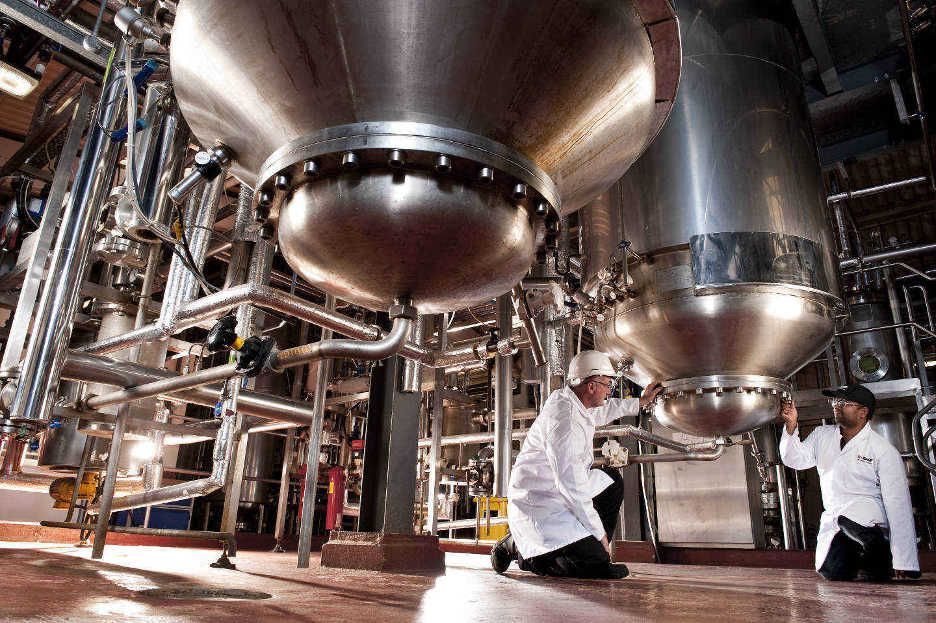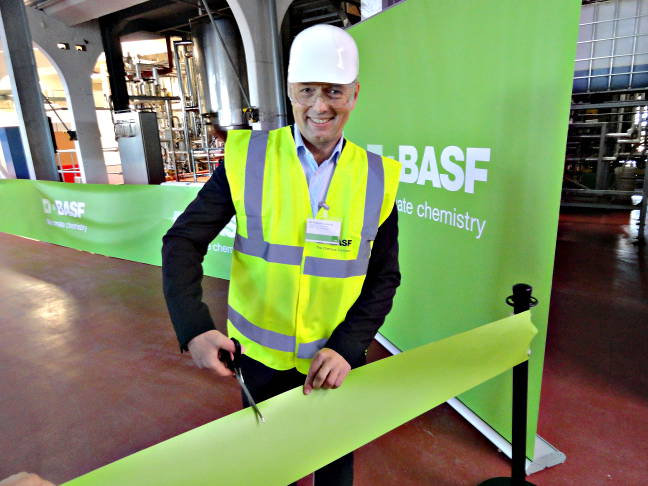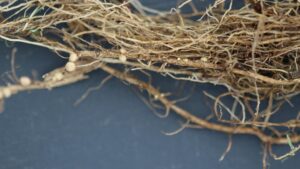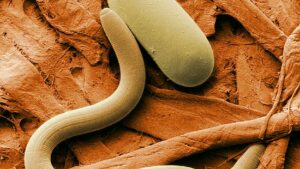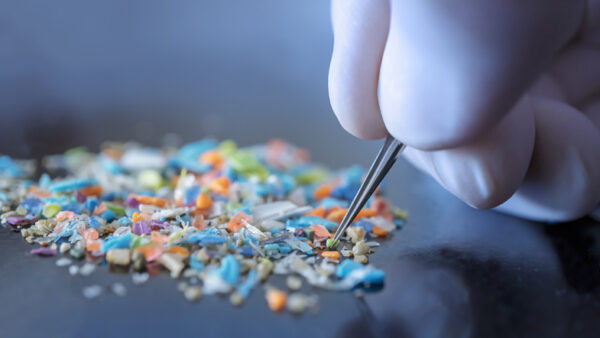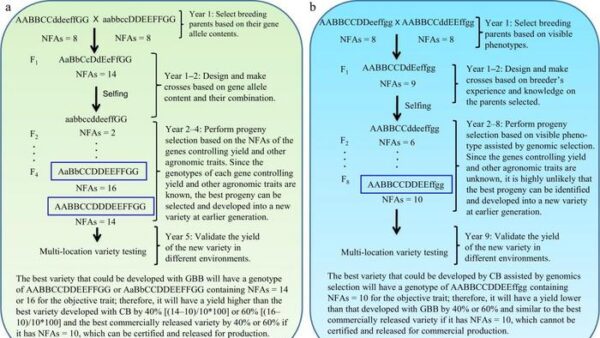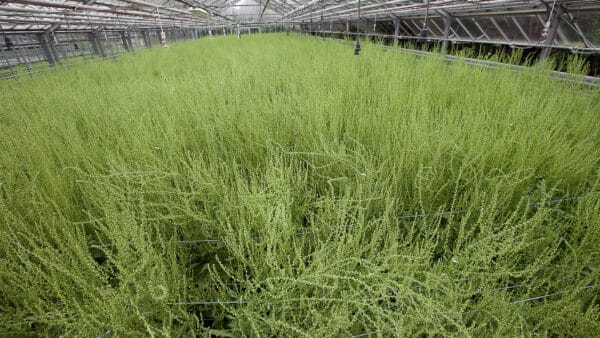BASF Crop Protection inaugurates its newly expanded facility in Littlehampton, United Kingdom today.
Seed World got a firsthand look at the expanded site, which is BASF’s only one for the manufacture, research and development, sales and distribution of its entire range of nematode-based biological control products for the global market. The expansion doubles the plant’s fermentation capacity to 190,000 liters.
“Our customers see an increasingly important role in using beneficial nematodes in Integrated Pest Management programs, as they are easy to apply, have a longer window of activity and can effectively control yield-robbing pests,” says Graeme Gowling, BASF Functional Crop Care group leader of global biologicals marketing.
The Littlehampton facility employs 35 people and is an important component of BASF Crop Protection and its recently-formed Functional Crop Care division — supporting a global portfolio of beneficial nematode-based products including the Nemaslug and Nemasys products for customers in the vegetable, horticulture and turf industries.
Beneficial nematodes are naturally-occurring microscopic organisms that can be used to control a diverse range of insect and slug pests. BASF’s scientists have isolated individual species of beneficial nematodes that target specific garden pests including slugs, vine weevils, chafer grubs, leatherjackets, caterpillars, codling moth and more.
The Littlehampton site is also one of the facilities BASF uses to manufacture seed-applied inoculant products such as Nodulaid and Nodulator used in Canada and the United States, Gelfix in Brazil, as well as Hi Coat and Vault HP in Argentina, Brazil and Europe. The seed-applied inoculants made at the facility contain rhizobia bacteria that, in a symbiotic relationship with their host legume plant, produce root nodules to increase nitrogen fixation.
Beneficial nematodes are multi-cellular organisms, which means, scientifically, they are classified as animals, Gowling adds. With plant capacity now doubling, BASF believes the Littlehampton facility is the world’s largest “manufacturer” of animals in the world.
And like the animals they are, the nematodes must be carefully looked after. It’s a big reason BASF has put so much care into designing the expansion. With its many fermentation vessels, one might mistake the equipment the facility uses for that found in a typical brewery or distillery, Gowling adds. But it is anything but standard fare.
The building houses five state-of the-art production vessels, which range in capacity from 6,200 liters to 75,000 liters, and 12 smaller inoculum vessels. It runs at full capacity year-round.
“When you’re producing an inert product like a chemistry, you can standardize things. Here we have to remember we are always dealing with a living organism, and a big part of our job is to make sure the grower gets a consistently-performing product based on a living organism,” says Gowling.
Growing a Market
The facility also represents the success of BASF’s Functional Crop Care division, formed in 2012 when BASF acquired Becker Underwood, and with it the Littlehampton facility, which first opened in 1996.
Functional Crop Care serves as a global business unit providing biological seed treatment, seed enhancement, and biological crop protection products. With those products getting more popular all the time — sales of more than €500 million in 2020 are forecasted for Functional Crop Care — a number of new innovations are being worked on. They include a new functional coating called Convenio and a biological insecticide called Broadband.
It’s an opportune time to expand capacity at the Littlehampton plant, according to Philipp Rosendorfer, BASF Functional Crop Care vice president of research and development.
“What a strong signal of success this is for our biological products,” says Rosendorfer, adding that because both manufacturing and R&D take place at the Littlehampton site, it’s the perfect hub for innovation in beneficial nematode and seed inoculants. “This expansion will clearly lead to a better market penetration and broaden our market base, and this will feed back to our research people and offer a better understanding of market needs and develop additional market potential — and that feeds back into the development of new products.”


